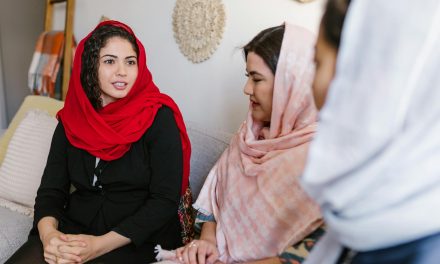

Many in the American church enjoy the freedom to worship openly and speak freely about their faith. However, in many parts of the world, sharing the Gospel comes with extraordinary risks. Missionaries operating in what are known as creative access countries must adapt to environments where traditional, open ministry methods can trigger severe government reprisals or even violence.

Subscribe to Our Newsletter
Get all the latest original content delivered straight to your inbox!
What Is a Creative Access Country?
A creative access country is one where laws, cultural norms, and political pressures make overt evangelism dangerous or illegal. In these places, the usual methods of church planting, public preaching, or openly distributing Christian literature are not options. Instead, missionaries use indirect, coded, and often innovative methods to share the Gospel. Their approach isn’t about hiding the truth—it’s a matter of survival, ensuring that both they and the local believers remain safe from government surveillance, arrest, or worse.
The Challenges and Risks Missionaries Face
Legal and Political Barriers
- Strict Legislation and Heavy Surveillance: In countries such as China, the government only permits state-sanctioned “patriotic” churches. Underground congregations and independent Christian gatherings must operate in secrecy, with any minor public mention potentially triggering government crackdowns. Reports from organizations like Open Doors and Voice of the Martyrs have shown that even seemingly innocuous details—such as mentioning a city in a newsletter—can lead to increased surveillance and raids.
- Severe Punishments: The penalties for engaging in unauthorized evangelism vary greatly from country to country. In some places, a single misstep can result in harsh imprisonment, long-term detention, or even execution.
The Need for Extreme Secrecy
- Protecting Local Believers: One of the greatest concerns for missionaries is the safety of indigenous Christians. Revealing details such as the location of a house church or the identities of local converts can expose these communities to government harassment or arrest. For this reason, newsletters, social media updates, and other communications intentionally obscure specifics.
- Operational Security: Missionaries routinely alter names, locations, and other identifying details. They might refer only to “a region in Asia” instead of a specific country, or use pseudonyms for local contacts. Such measures, while frustrating to those used to open ministry, are essential to prevent authorities from piecing together clues that could endanger lives.
- Digital Dangers: Modern technology, including email and social media, can be a double-edged sword. There are documented cases where missionary teams were forced to suspend digital communications after detecting unusual patterns of government surveillance. Switching to encrypted messaging and using coded language isn’t just smart—it’s a necessary adaptation to a hostile environment.
Specific Punishments in Some Countries
Understanding the risks in creative access countries means recognizing that the consequences for even minor breaches can be severe:
- China: Missionaries involved with underground churches often face arrest and detention. In some instances, individuals have been sent to “re-education” camps where conditions are harsh and freedoms severely curtailed. Even a minor leak of information, such as a newsletter inadvertently revealing a city’s name, can lead to increased monitoring and prolonged detention.
- Iran: Both local Christian converts and foreign missionaries risk long-term imprisonment and steep fines. In Iran, proselytizing has led to severe crackdowns; converts are sometimes detained under brutal conditions, and foreign workers may find themselves facing charges that carry heavy penalties.
- Saudi Arabia: Under the strict interpretation of Sharia law, apostasy can be punishable by death. In Saudi Arabia, any form of proselytizing is met with extreme hostility. Missionaries or locals found sharing Christian teachings face the possibility of execution, leaving little room for any kind of religious expression outside the state-sanctioned norm.
- Egypt: Although Egypt has a long Christian tradition and a significant Christian minority, the government remains wary of perceived foreign influence. Missionaries have been arrested for “spreading foreign ideologies,” and local believers have encountered imprisonment and harassment merely for participating in covert evangelism.
- Other Middle Eastern Countries: Across various nations in the region, penalties for proselytizing can range from corporal punishment (such as flogging) and substantial fines to long prison sentences or even capital punishment. These risks are compounded by a cultural environment steeped in suspicion toward any independent religious activity.
How Your Local Church Can Understand and Support Missionaries
It’s not always easy for Western churches to grasp the intensity of the risks faced by missionaries in creative access countries. Here are some practical ways your local church can foster understanding and offer support:
- Regular Updates and Communication: Encourage communication between your church and mission organizations. Many groups provide secure updates (using coded language) that give a glimpse into their work without compromising safety. Understanding the nuances behind these updates can help bridge the gap between what is reported and what is happening on the ground.
- Support Networks: Establish support groups or prayer chains specifically dedicated to interceding for missionaries and their families. Recognize that the stress and challenges they face extend beyond physical dangers—they often live in isolation, cut off from the usual support systems available in open societies.
- Financial and Material Support: Consider organizing fundraisers or donation drives to support mission organizations working in creative access countries. Financial contributions can help provide the necessary tools for secure communication, encrypted technology, and emergency assistance.
- Advocacy: Stay informed about the human rights situation in creative access countries and advocate for religious freedom. This might include writing to local representatives, supporting international human rights organizations, or joining awareness campaigns that highlight the plight of persecuted believers.
How to Pray for Missionaries and Their Partners
Prayer is a powerful way to support those who labor under constant threat. Here are some ideas on how you can lift up missionaries and their communities in prayer:
- Prayer for Protection: Ask God to shield missionaries, local believers, and their families from harm. Pray for a divine hedge around their homes, churches, and communication channels.
- Wisdom and Discernment: Pray that God would grant them wisdom in every decision, from everyday choices to navigating complex legal and cultural challenges. Ask for clarity in moments of uncertainty and the discernment to know when to act and when to remain discreet.
- Strength and Endurance: Petition for physical, emotional, and spiritual strength. Missionaries often endure isolation and fear; pray that God would sustain them and replenish their courage daily.
- Breakthrough and Change: Pray for a transformation of hearts and minds in repressive countries. Ask that barriers to the Gospel be removed and that even those in power come to recognize the freedom found in Christ.
- Unity and Community: Pray that the global church would remain united in support of missionaries. Ask for deeper understanding among Western believers so that they may stand in solidarity with those on the front lines of faith.
Rise Up and Take Action
The courage and ingenuity of missionaries working in creative access countries are a powerful call to the global church. Their daily sacrifices remind us that the cost of sharing the Gospel can be extraordinarily high—and yet, they continue to serve in the face of overwhelming challenges.
Your local church can play a vital role in this mission by educating its congregation, offering both material and spiritual support, and advocating for the rights and freedoms of persecuted believers worldwide. Let their hidden struggles inspire us to action: to pray with passion, to support with our resources, and to stand in solidarity with those who risk everything to spread the message of hope.
By deepening our understanding and actively engaging in support and prayer, we not only honor the sacrifices of these missionaries but also participate in a broader, life-changing mission that reaches across borders and transforms lives. Now is the time to rise up, take action, and be part of a movement that champions freedom, faith, and hope in even the darkest corners of the world.























